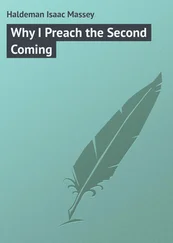Let the truth out: Kaplansk has no grammar. I am an American from the 1970s. In Miss Eckersley’s English class, we sewed puppets while Miss Eckersley played guitar and sang.
Again, today, I drone onward, reading to my learners out of the book. English Lesson 12: The Simple Future. I drone as if droning itself is to have faith in something. .
“To express a promise, willingness, as well as futurity, we use I (we) will and not I (we) shall. Remember, for the interrogative we use Shall I? in all cases, not Will I? Now, Shall I or Shall we? often has the meaning Do you want me to…? or Would you like me to…? E.g., Shall I open the window? Shall I get you a cup of tea? Shall we go to the theater tonight? Will, on the other hand, is another can of worms entirely. Will expresses not a question but rather a determination. For instance, I will study my grammar during study hour. I will not beat children who are smaller than I. This sort of thing. Any questions? Confusions? Bafflements? Things of this nature?”
“The simple future as opposed to what?” Rubrecht Kanhala, class genius and sweat-inducing burden on the teacher, asks.
“Excellent question, Rubrecht. As opposed to, well, the complicated future, which we don’t have to worry about right now.”
Resume drone.
The other boys’ heads remain steady; for a while the droop is only in their eyes. Then slowly, one after another, their heads begin to drop, and I watch them catch their heads without their hands, raise them again, and try so hard to listen.
“All right, then. Does anybody remember what an interrogative is?”
Silence, tomb-like. Even Rubrecht is tired of this. None of the boys wear watches and there’s no clock on the wall, but Jeremiah Puleni, famous for knowing the time in his bones, has begun to rub his feet on the sandy floor. Half an hour left now and everybody knows I’ll talk it to the grave. Jeremiah, barefoot farm kid so much taller than the other boys, older too. He started school years late because he was needed on the farm. His brother was up north in the fighting. He’s never caught up. He just sits in class after class and smiles. Jeremiah Puleni smiles across years. Not a word of English, he speaks only Damara and Afrikaans. When I look at him, he’s always staring, silent, concentrating. I wonder, Concentrating on what, Jeremiah? A big oaf of a kid, always looking for a reason to laugh. We know he’s doomed, and for this we all love him more. Goas is a haven for some. No one wants to think about what will happen to Jeremiah Puleni when he finally finishes Standard Seven and there’s no primary school left for him.
“Good. Now copy this chart.”
I watch the sun streak through the tall windows. Dusty yellow bars reach across the room, crashing into the heads of the taller boys. Jeremiah’s face awash in light, and still he narrows his eyes at the rules on the board, copied by Teacher but not understood by Teacher. To this day, not understood by Teacher. And Jeremiah Puleni? Him staring politely, his lips quivering, as if it all makes perfect sense, is perfectly reasonable.
Not yet morning and Obadiah sits in the paling darkness in his blue chair and caresses his new Grundig radio. The batteries are spent and the generator’s been off for hours, but still he imagines what it might tell him or what song it might play. So much going on — even now, even all the way out here — in this silent little box. A cacophony of unheard voices, and here he sits in a robe and slippers listening to possibility. Astonishing, isn’t it, that there is ever silence in a world so vast and full of voices? Today in class he will yank out all the great maps from the locked cabinet and tack them up all over the walls, show the children the North Pole, Siberia, Alaska, the Philippines, Addis Ababa, Cairo, Montevideo. He will thrill the children with the possibilities of maps. The world sits flat and conquerable. All pilgrimages possible! Maps — his heart soars — is there anything so glorious as a map? Even for a man who rarely ventures farther than the Pick ’n Pay in Karibib?
Antoinette sleeps. In the darkness he sees her without needing to look toward the half-open bedroom door. She sleeps with her feet sticking out from under the blankets like two paddles she’d smack him with. Her mouth gripped tight. She sleeps with her teeth clenched, in case she should die. Her soul might escape, she says. She breathes, noisy, out her nose. When they were younger, he used to kiss her as she slept. He’d pry her mouth open with his tongue. Was that myself? I’d like to do it now. Why can’t I? He lets go of the radio, but remains where he is, looking at nothing and everything. The newspaper photographs thumbtacked to the wall behind his head. Nkrumah, Bobby Kennedy, Miriam Makeba, a handcuffed Zephania Kameeta. They all stare at him, waiting for him to do something. Do what? What would you gallants have me do? He’d like a nip. A half-pint’s in his closet, waiting for him in a worn-out loafer, its copper top peeping out like a baby’s head. In the hostel, the boys are sleeping. In Windhoek, his sons, Thomas and Matti (both employed), are sleeping. In Tehran, two lovers, Tehranians, sleep. In Moscow, old cosmonauts gracefully sleep. In Peru, Morocco, Flanders. Why? Why can’t I?
The windmill behind the mission garage begins to move, one hesitant creech, then another and another until it reaches full squeal. He sees it looming above the mission garage in the dark. Aermotor Chicago . On the other blue chair is Antoinette’s unfinished needlework. He wants to touch it. Touch whatever it is she’s making now, to twist his fingers in that scrumble of yarn, but he doesn’t move, doesn’t reach for it. Only thinks about what it would feel like if he did. Which is different, isn’t it? He listens to her gusty breathing in the bedroom as the light turns from fog to yellow. Antoinette’s cocks crow all night. They never sleep either. To them it’s always dawn. Even so, he thinks, isn’t there always a darkening before morning? Why not touch? Why not go to her now? Why are there times — he’s thought this before — we’d rather want than grasp?
With Mavala Shikongo gone, our lusts still maintained a constant: Dikeledi. Pohamba once worked up the equation: p = d = 2 r = Dikeledi . Impossible that she was Festus’s wife, and yet she wore it proudly. She dominated Festus in ways we didn’t even try to fantasize about. It was rumored that when she wanted him — as in when she wanted him wanted him — she rang a little bell, a little tinkle tinkle only he could hear. These were the sorts of disgusting particulars we had to endure. Festus and Dikeledi were the farm’s abhorrent newlyweds. It was said she washed her teeth in fresh goat’s milk every morning. We all wished she’d sleepwalk over to the singles quarters, because that was the only way she’d come near us. She must have cleaned their little purple house all day. Somehow she successfully banished every grain of sand, every crunchable beetle underfoot. I used to watch her looking out the window. She didn’t seem to have any interest in watching our soccer field antics up close, but she always watched from the window. And so we made a point of putting on shows out there for her. That time Pohamba challenged every boy in Standard Five to wrestle him all at once. My job was to make certain no older boys snuck into the match, so I’d lined them up and crosschecked them against the Standard Five register. I set them up in three clusters, ripping off a dumb line from my junior high gym teacher: All right, halfwits, listen up. I want half of youse over here, half of youse over here — and half of youse over here. Pohamba with all those boys hanging from his neck, and the rest of us jeering him to scrum the Standard Sixes too. I look toward Festus’s purple house and there’s Dikeledi in the window.
Читать дальше












